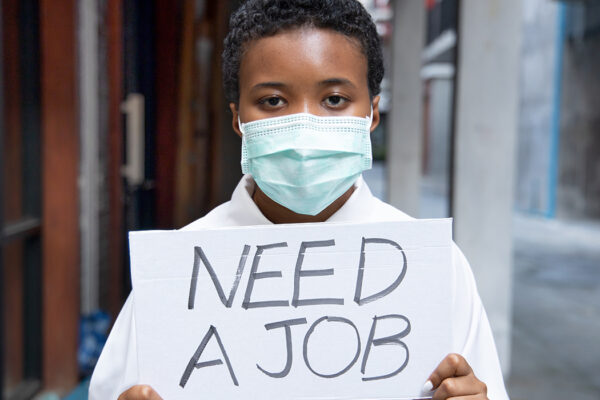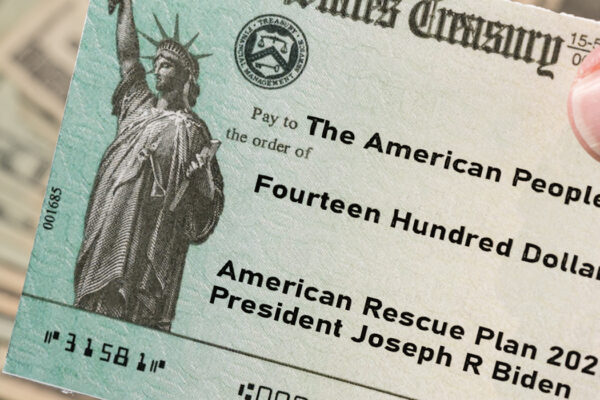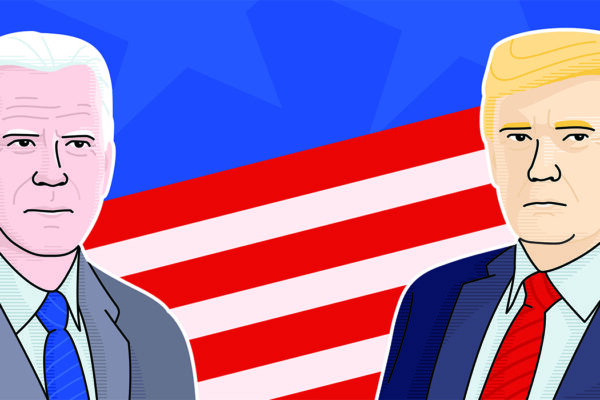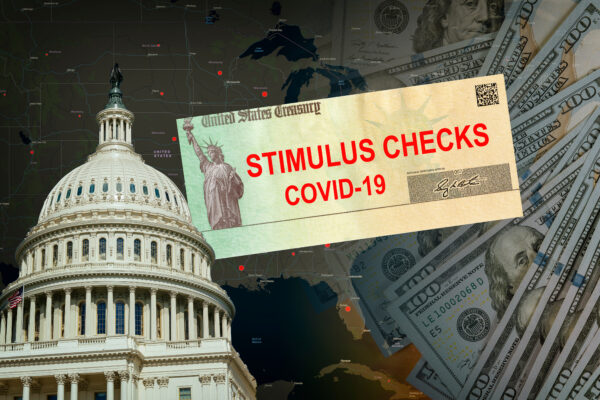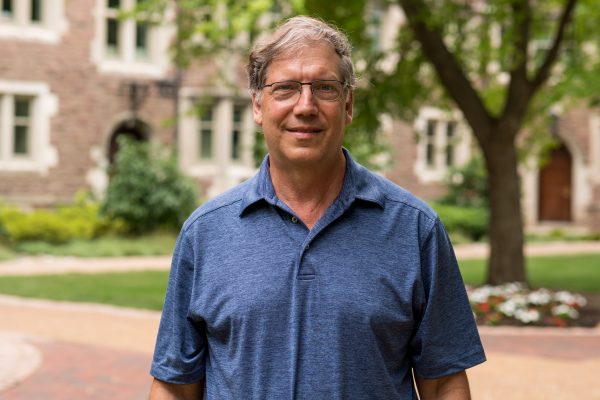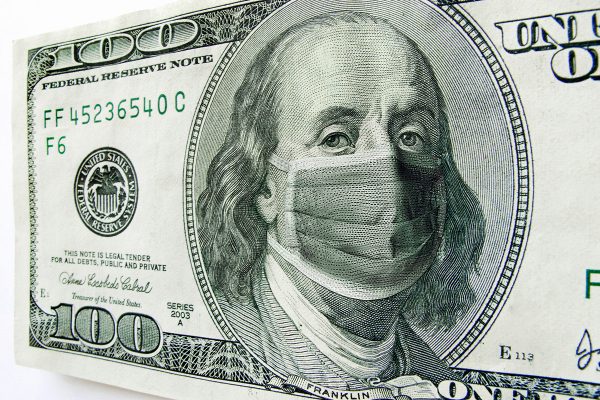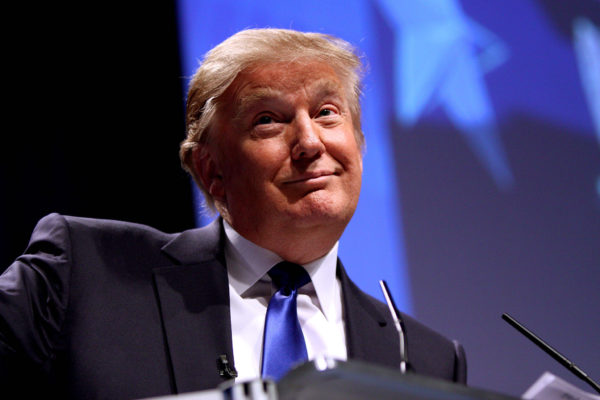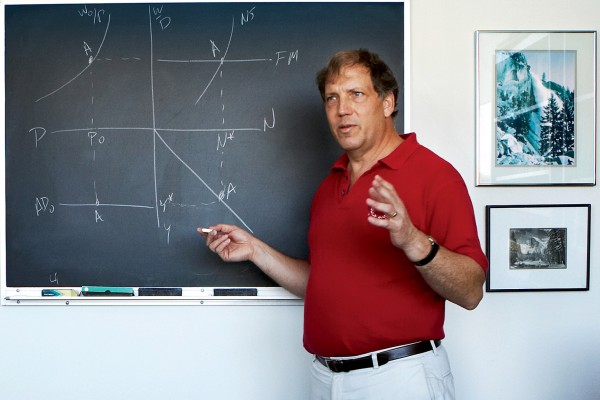Fazzari’s research explores two main areas: the financial determinants of investment and R&D spending by U.S. firms and the foundations of Keynesian macroeconomics. A recent search found more than 1,100 citations to Fazzari’s publications in the Research Papers in Economics database (over 5,000 in Google Scholar). In addition, his research and commentary on public policy issues has been highlighted in the national media. Among other current research projects, Fazzari is now co-editing a book that investigates the sources and responses to the U.S. “Great Recession” that began in late 2007.

Steven Fazzari
Bert A. and Jeanette L. Lynch Distinguished Professor of Economics, professor of sociology
Contact Information
- Phone: 314-935-5693
- Email: fazz@wustl.edu
- Website: Website
Media Contact
In the media
$1 Trillion of Wealth Was Created for the 19 Richest U.S. Households Last Year
Steven Fazzari, the Bert A. and Jeanette L. Lynch Distinguished Professor of Economics
‘Jamaica to the world’
Steven Fazzari, the Bert A. and Jeanette L. Lynch Distinguished Professor of Economics
We’re told recession is over. But long recovery still lies ahead
Steven Fazzari, the Bert A. and Jeanette L. Lynch Distinguished Professor of Economics
Why Wage Increases And Sign-On Bonuses Aren’t Enticing Workers To Search For New Jobs
Steven Fazzari, the Bert A. and Jeanette L. Lynch Distinguished Professor of Economics
Americans Are Leaving Unemployment Rolls More Quickly in States Cutting Off Benefits
Steven Fazzari, the Bert A. and Jeanette L. Lynch Distinguished Professor of Economics
‘I can start on the 13th’: Extra unemployment payments end this weekend in Missouri
Steven Fazzari, the Bert A. and Jeanette L. Lynch Distinguished Professor of Economics
Where’s the jobs surge? Just wait a few months, economists say
Steven Fazzari, the Bert A. and Jeanette L. Lynch Distinguished Professor of Economics
‘I have no idea what I’m going to do’: Missouri’s unemployment cuts put jobless on the clock
Steven Fazzari, the Bert A. and Jeanette L. Lynch Distinguished Professor of Economics
The Pandemic Recession Hit Women And Less Educated Workers Hard, Study Finds
Steven Fazzari, the Bert A. and Jeanette L. Lynch Distinguished Professor of Economics; and Ella Needler, senior
WashU study identifies groups most impacted in pandemic recession
Steven Fazzari, the Bert A. and Jeanette L. Lynch Distinguished Professor of Economics; and Ella Needler, undergraduate student, Olin Business School
How “pooled testing” can help keep schools open
Steven Fazzari, the Bert A. and Jeanette L. Lynch Distinguished Professor of Economics
The recession has probably ended, but it sure doesn’t feel like it
Steven Fazzari, the Bert A. and Jeanette L. Lynch Distinguished Professor of Economics
Missouri has little clarity on plans for extra unemployment under Trump order
Steven Fazzari, the Bert A. and Jeanette L. Lynch Distinguished Professor of Economics
Stimulus checks won’t work. Unemployment boost is more effective
Steven Fazzari, the Bert A. and Jeanette L. Lynch Distinguished Professor of Economics
Do big unemployment checks make workers lazy? No, and stopping them would hurt the economy
Steven Fazzari, the Bert A. and Jeanette L. Lynch Distinguished Professor of Economics
As the wealthy retrench amid the coronavirus crisis, low-wage workers take the hit
Steven Fazzari, Bert A. and Jeanette L. Lynch Distinguished Professor of Economics
‘A tug-of-war’ as St. Louis, St. Louis County businesses consider how to reopen
Steven Fazzari, the Bert A. and Jeanette L. Lynch Distinguished Professor of Economics
By hitting low-wage industries hard, pandemic is likely to make inequality worse
Steven Fazzari, the Bert A. and Jeanette L. Lynch Distinguished Professor of Economics
Unemployment Is Soaring, But St. Louis Economists Say Don’t Compare This To The Great Recession
Steven Fazzari, the Bert A. and Jeanette L. Lynch Distinguished Professor of Economics
Brace yourself for some really bad economic news
Economic data over the next few months will likely look very bad. It is simply too late for policy to prevent a severe contraction, writes Steve Fazzari. The focus now must be on quick recovery.
‘What are we supposed to do?’ Service workers hardest hit by coronavirus closures
Steven Fazzari, the Bert A. and Jeanette L. Lynch Distinguished Professor of Economics and Jake Rosenfeld, associate professor of sociology
How the 2008 and 2020 recessions will be different, and why that matters
Steven Fazzari, the Bert A. and Jeanette L. Lynch Distinguished Professor of Economics
Carry-out only: Restaurants in St. Louis area ending eat-in service by midnight Thursday
Steven Fazzari, the Bert A. and Jeanette L. Lynch Distinguished Professor of Economics and Glenn MacDonald, the John M. Olin Professor of Business, Law & Economics
Businesses Fret Over Potential Bernie Sanders Presidency
Steven Fazzari, the Bert A. and Jeanette L. Lynch Distinguished Professor of Economics
What you should know about household debt
Steven Fazzari, the Bert A. and Jeanette L. Lynch Distinguished Professor of Economics
We’ve come a long way since 2009 as U.S. expansion becomes longest on record
Steven Fazzari, the Bert A. and Jeanette L. Lynch Distinguished Professor of Economics
Trump tariffs are based on flawed view of trade
Steven Fazzari, the Bert A. and Jeanette L. Lynch Distinguished Professor of Economics
Do deficits matter? We may be about to find out
Steven Fazzari, the Bert A. and Jeanette L. Lynch Distinguished Professor of Economics
Trump’s Economic Analysis: Gets Symptoms Right, But Diagnosis Wrong
Steven Fazzari, the Bert A. and Jeanette L. Lynch Distinguished Professor of Economics
Why Stock Buybacks Are Often a Lousy Idea
Steven Fazzari, the Bert A. and Jeanette L. Lynch Distinguished Professor of Economics
In an Age of Privilege, Not Everyone Is in the Same Boat
Steven Fazzari, the Bert A. and Jeanette L. Lynch Distinguished Professor of Economics
As Stock Prices Slump, Don’t Count on Buybacks
Steven Fazzari, the Bert A. and Jeanette L. Lynch Distinguished Professor of Economics
Stories
Democracy in Danger: Former congressmen launch bipartisan call to action
The Washington University in St. Louis community is invited to register for a virtual discussion with former U.S. congressmen Russ Carnahan and Tom Coleman about voting rights and the threats facing American democracy.
Black and Hispanic women, less educated workers among those hardest hit by COVID-19 job losses
The current recession created by the COVID-19 pandemic has especially impacted women — particularly Black and Hispanic women — and less educated workers, magnifying existing U.S. employment inequality, according to new research from Washington University in St. Louis.
Breaking down the American Rescue Plan
The American Rescue Plan is a remarkable effort to jump-start the U.S. economy — unprecedented in scale outside of major wars — and will lead to very fast growth of the U.S. economy over the next year, according to Steven Fazzari, director of the Weidenbaum Center on the Economy, Government and Public Policy.
New podcast explores democracy
Now more than ever, it’s important to understand issues from different perspectives. The American Democracy Lab podcast aims to do just that.
We need economic rescue, and we need it now
After months of failed negotiations that have left many Americans, businesses and the economy in the lurch, lawmakers are scrambling to reach a deal on an economic stimulus plan that could top $900 billion. If Congress passes the deal, will it do enough to help struggling Americans and businesses stay afloat? To answer that question, three business and economics experts at Washington University in St. Louis shared their thoughts on the proposed plan, what lawmakers got right, what is missing and what ticking time bombs remain.
Brace yourself for some really bad economic news
The coronavirus relief act addresses some critical needs but remains more focused on “rescue” than economic “stimulus.” Additional federal intervention may very well be necessary, and soon.
Federal package ‘not enough’
The $2 trillion plan to prop up a pandemic-reeling United States, amid the news that there were 3.3 million unemployment claims lodged in the previous week, is expected to pass the House on March 27. An array of Washington University in St. Louis experts offer perspectives on the plan.
Symposium explores the rise of Donald Trump, March 9
“American Democracy and the Rise of Donald Trump” will be the focus as faculty experts in history, political science, sociology, law, economics and psychology gather for a public symposium from 1-4 p.m. Thursday, March 9, in Room 100 of Brown Hall, on the Danforth Campus of Washington University in St. Louis.
Sociology launches inaugural semester with focus on income inequality
Social problems linked to America’s growing disparities
in income and wealth will be a major focus of the re-launched
Department of Sociology in Arts & Sciences at Washington University
in St. Louis, including its first co-sponsored public lecture of the
fall semester.
Fazzari to chair new sociology department in Arts & Sciences
Steven Fazzari, PhD, a leading scholar on the relationship between rising income inequality and macroeconomic trends in the United States, will be chair of the recently re-established Department of Sociology at Washington University in St. Louis, Barbara A. Schaal, PhD, dean of the Faculty of Arts & Sciences, has announced.
Target: Shared prosperity
In “Economic Realities of the American Dream,” professors Steven Fazzari and Mark Rank examine the American Dream’s historical meaning, the traditional pathways to reach it, the current obstacles to achieving it and its viability in the future.
Steven Fazzari to be installed as the Bert A. and Jeanette L. Lynch Distinguished Professor
Steven Fazzari, PhD, will be installed as the Bert A. and Jeanette L. Lynch Distinguished Professor in a ceremony on Monday, April 21. He is the first to receive this distinction in the Department of Economics, thanks to the generosity of the Lynches, who have provided for a total of three new professorships. The other two are named in honor of Douglass C. North, PhD, and the late Murray L. Weidenbaum, PhD.; these appointments will be made at a future date.
The American dream still possible, but more difficult to achieve, students discover
In a modern society struggling to loose the grip of a lengthy economic recession, is the American dream really attainable? The
dream may still be possible, though much more difficult to achieve, say
a renowned macroeconomist and one of America’s foremost experts on
poverty, co-teachers of a course on the American Dream this semester at Washington University in St. Louis.
Exploring the American Dream
What is the American Dream’s role in today’s society? Experts from Washington University in St. Louis will explore this question in a panel discussion at 4:30 p.m. Wednesday, April 18, in Brown Hall Lounge on the Danforth Campus. Panelists are Steven Fazzari, PhD, professor of economics in Arts & Sciences; Carter W. Lewis, playwright-in-residence in the Performing Arts Department in Arts & Sciences; and Mark R. Rank, PhD, the Herbert S. Hadley Professor of Social Welfare at the Brown School.
Dissecting the Great Recession
The United States is slowly climbing out of one of the
worst economic recessions in its history. As the economy slowly begins
to turn a corner, Stephen M. Fazzari, PhD,
professor of economics in Arts & Sciences, will examine how we got
here and where we are headed in a series of three lectures beginning
Jan. 30.
World Series boon to St. Louis economy? Maybe not, economist says
While the St. Louis Regional Commerce and Growth Association claims the World Series will provide a $24.4 million economic boost to the area, a Washington University in St. Louis economist says it won’t change the area’s economic outlook as a whole.
WUSTL experts comment on debt ceiling debate
Discussion of the federal debt ceiling has dominated the front page recently. Several Washington University in St. Louis faculty experts, all members of the Weidenbaum Center on the Economy, Government, and Public Policy, have offered their opinions to the news media on the history of the debt ceiling and what may happen if a deal is not reached.
Former WUSTL professor’s theory presaged the Great Recession
If the titans of finance had only been paying attention, they would have seen that former Washington University in St. Louis economics professor Hyman P. Minsky had predicted the Great Recession decades before it happened.
‘Politics and the Global Recession’ focus of public forum Feb. 25
The intricately intertwined relationship between the global economy and politics will be the focus of a public forum titled “Politics and the Global Recession” at 7:30 p.m. Thursday, Feb. 25 in the Knight Center. The program is being sponsored by the Weidenbaum Center on the Economy, Government, and Public Policy.
Financial meltdown: causes, consequences and cures
The recent meltdown in financial markets around the world, government rescue plans and the future of the global economy will be the focus of an international panel of economic experts Friday, Oct. 17, 2:30 p.m., at Washington University in St. Louis. Free and open to the public, the event will be held in the Lab Sciences Building, Room 300 on the Danforth Campus.
A “Minsky moment”
FazzariWUSTL economist Steven Fazzari, Ph.D., argues that we have now reached the “Minsky moment,” the time when an unsustainable financial boom turns to bust. “The serious consequences for employment and economic growth in this crisis can be mitigated, but not eliminated, by the defensive financial bailouts that the federal government has initiated,” Fazzari says.
WUSTL economist Fazzari to discuss consumer impact on current crisis
FazzariFazzari, Ph.D., professor of economics and associate director of the Weidenbaum Center on the Economy, Government, and Public Policy in Arts & Sciences, will discuss the conditions that have contributed to the economic turmoil, and share his research regarding what’s in store for the future in his Assembly Series presentation, “The U.S. Economy in the Consumer Age.” His conclusion will cover a discussion of how, if at all, the major policy steps proposed by the presidential candidates address the deepening recession. The event, free and open to the public, will be held at 4 p.m. Wednesday, September 24, in the Women’s Building, Formal Lounge.
Fazzari to deliver timely talk on economy for Assembly Series
Steven Fazzari, Ph.D., professor of economics and associate director of the Murray Weidenbaum Center on the Economy, Government, and Public Policy in Arts & Sciences, will discuss the current economic crisis for the Assembly Series Wednesday, Sept. 24.
Recession’s root cause is consumer debt, expert says
While consumer spending once helped keep the economy healthy, rising consumer debt is the reason it’s getting sick. The root cause of the current economic slowdown in the U.S. goes back several decades, according to an economics professor at Washington University in St. Louis.
Subprime problems signal trouble ahead, research shows
Mortgage woes could get worse thanks to easy credit.If it seems as though sub-prime mortgage loans stirred up trouble in the financial markets, just wait until debt problems spill over onto household spending. America’s love affair with spending could trigger the most severe downturn in economic activity seen since at least the 1980s — and possibly since the Great Depression.
Challenges for dollar, euro in global economy is focus of St. Louis conference, May 25
What challenges does globalization present for industrialized economies, such as the United States and the European Union? How will fluctuations in dollar and euro exchange rates affect economic growth, inflation and interest rates? Will globalization influence the role of the dollar and the euro in international financial systems? These are a few of the questions to be explored May 25 as high-ranking international finance policymakers from the European Union and the United States join scholars for a conference on “The Euro and the Dollar in a Globalized Economy” at Washington University in St. Louis.

